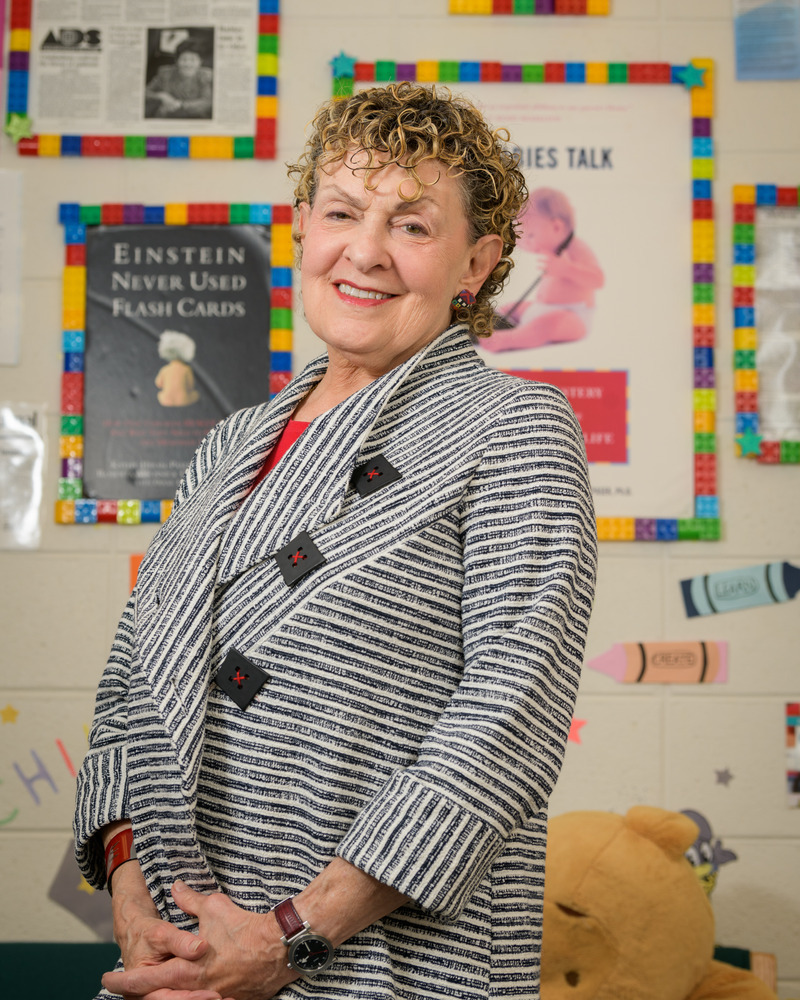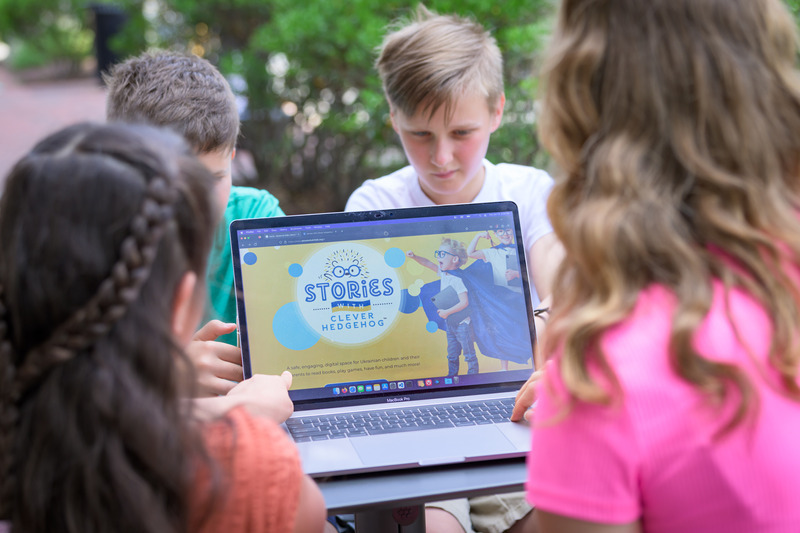


Summer fun with reading
Photos by Evan Krape and courtesy of Rebecca Joella August 04, 2025
College of Education and Human Development experts share literacy activities and guidance for caregivers while school’s out for the summer
As summer comes to an end, some parents and caregivers may notice that their children’s summer reading books still remain untouched on their children’s bedside tables. How can they encourage a love of reading while their children are out of school?
Roberta Michnick Golinkoff, Unidel H. Rodney Sharp Chair and professor in the University of Delaware’s College of Education and Human Development (CEHD), and Rebecca Joella, professional development coordinator in CEHD’s Delaware Institute for Excellence in Early Childhood, both specialize in language and literacy development for children. Together, they share guidance for caregivers on fostering literacy skills and making reading fun during the summer.

Q: What are some fun ways to incorporate reading into summer activities with children?
Golinkoff: Fun is right! We want to make reading fun, instead of a drag or something we have to push kids to do. Reading with the family totally normalizes it, and if kids think their family is excited about reading, they are more likely to be excited, too. You can try designating a special reading time where all family members close off their tech and read together for 30 minutes. As you read with your kids, encourage them to ask you questions and invite conversation. There is also no reason why kids can’t still be read to, even after they know how to read themselves. Cuddling up with a family member and a good book is great for parents’ stress reduction too.
Joella: Visiting a local library is an excellent summer activity. Many libraries have summer reading programs for children that encourage reading, so participating in one of those is a lot of fun. Using ideas from books as a springboard for other activities is also an excellent way to make books come alive. For example, Anna Dewdney’s Llama Llama Loves Camping for preschoolers can inspire a summer camping trip. That camping trip can even happen right at home. Use a sheet or blanket to build a tent and have a picnic inside!

Q: What are your favorite summer books for children?
Joella: Summer by Alice Low, which chronicles fun summer activities like taking trips to the beach, eating watermelon and fishing, used to be our daughters’ favorite summer book. They are 20 and 16 now, but we still have it on our bookshelf. We read that book hundreds of times over the years! Beach Day by Karen Roosa, Summer Is by Barbara Pinke and Pete the Cat: Pete at the Beach by Micheal Bond are also great summer reads for early readers.
Any book that gets children excited and interested in reading fosters early literacy skills. Children becoming competent, lifelong readers is the goal. They need to learn skills to read well, but they first need to enjoy books. When children have people in their lives that expose them to books and reading at a very young age, they develop a love of reading that continues into adulthood.
Q: Educators often speak about the “summer slide,” referring to the regression of skills during the summer as kids are out of school. In addition to shared and independent reading, how else can parents and caregivers foster early literacy skills?
Golinkoff: Children from under-resourced families experience a far more profound drop in their academic development than those from middle class families who can afford to enrich their children by signing up for camps (some of which have academic leanings), going on trips to historical sites, visiting the library and requiring summer reading. This issue has been important to me for many years and it inspired, in part, my work on Playful Learning Landscapes. Since 2010, my partner Kathy Hirsh-Pasek and I have transformed everyday urban spaces into playful learning centers for children that foster literacy, STEM and spatial skills. For example, we transformed a park with a pop-up experience designed to showcase the science of how brains learn, morphed a bus stop into a playful learning plaza with the West Philadelphia Belmont Civic Association and mounted a life-sized human board game at the Philadelphia Please Touch Museum.
This summer also marks the two-year anniversary of our Stories with Clever Hedgehog project, which brings free, interactive e-books and activities to children and their families in partnership with the Jacobs Foundation and others. We developed the resource to support Ukrainian families displaced by the war, but all books and activities are offered in both Ukrainian and English and open to children around the world. Activities like the Playful Learning Landscapes or Stories with Clever Hedgehogs are designed to be accessible to all families and can help children develop important skills while they’re out of school.
To learn more about CEHD research on literacy and language, visit its research webpage.

Contact Us
Have a UDaily story idea?
Contact us at ocm@udel.edu
Members of the press
Contact us at mediarelations@udel.edu or visit the Media Relations website

